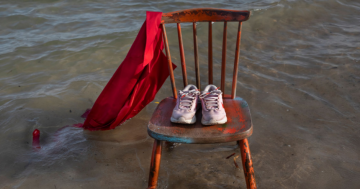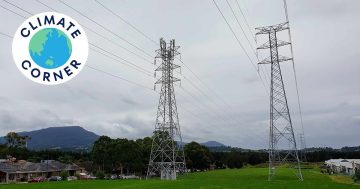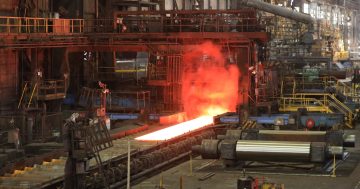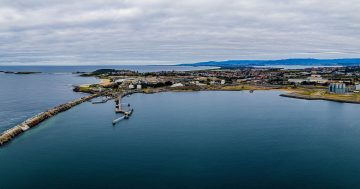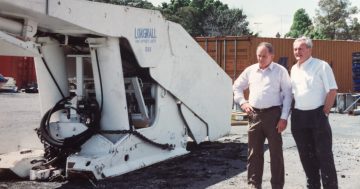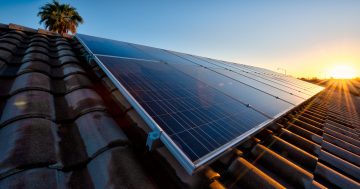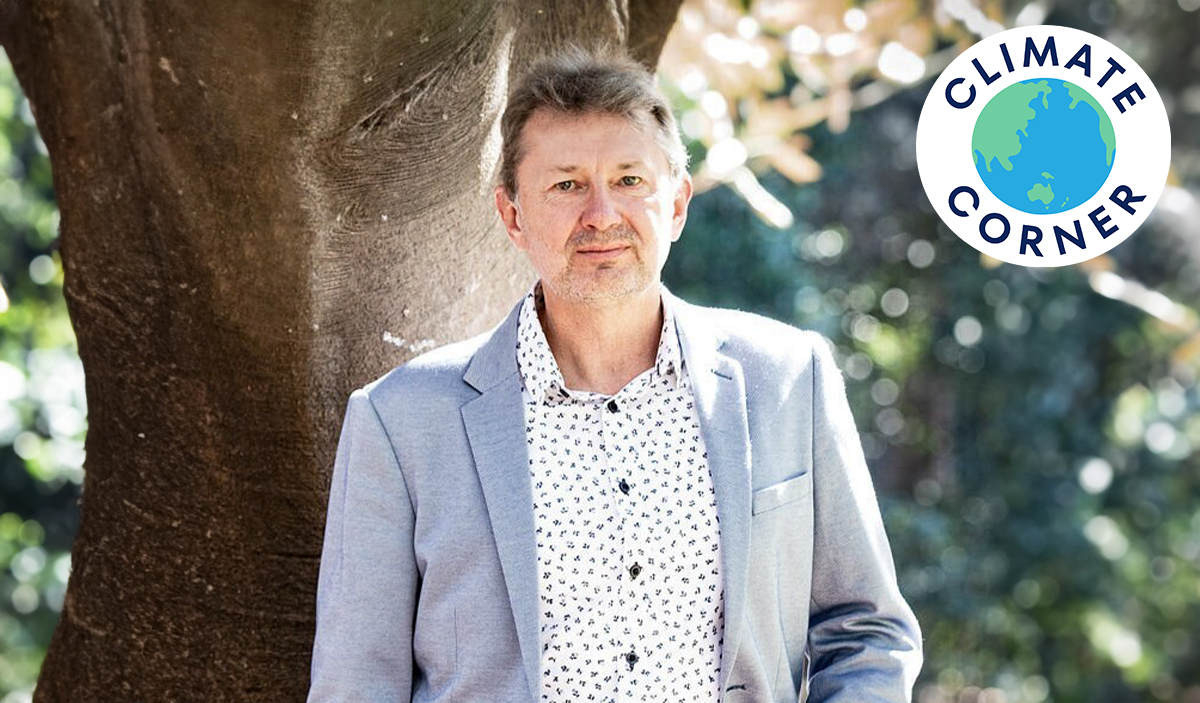
Energy expert Ty Christopher is going to help us navigate what we can do to help the climate. Photo: University of Wollongong.
The science is in – not only is climate change here, but we’re beginning to see the consequences.
After years marked by disasters of unprecedented scale – think the Black Summer bushfires, US heatwaves, and floods in Pakistan – and a COP28 hosted by one of the world’s major oil producers, it’s hard not to feel a little overwhelmed, and a lot helpless.
That feeling of helplessness is one of the biggest hurdles to overcome in taking action on climate change.
The idea that “it’s too late to make a difference” is often pushed by the same companies that once denied climate change exists at all.
While you (probably) can’t wave a magic wand and keep global temperatures under the 1.5 degrees Celsius Paris Agreement target (if you can, please do) there are actions you can take to help address, mitigate and adapt to our rapidly changing climate.
To help us on our quest to understand our changing world, and what we can do to help, we’ve teamed up with experts at the University of Wollongong to explain the latest in climate news, what it means for our community, and what you can do to help.
Energy expert from the faculty of engineering, Ty Christopher, is here to help us on our way – and when he can’t he’ll point us to the person who can.
A former power engineer and licensed electrician, Ty has a robust understanding of our energy grid, and how simple household changes can reduce our energy consumption at home.
“I don’t profess to have all of the answers, but I can certainly help,” he said.
“I’ve lived in a fully electric home for the past 14 years – as an electrician and a tightarse, it just made sense.”
He’s a big believer in the power of individuals to make change. It’s not just blind faith – he has the data to back it up.
“The biggest coal-fired power station that’s ever existed in Australia is nearing its end of life now,” he said.
“Its capacity is 2.8 gigawatts.
“In the last decade Australians have installed on our homes 23 gigawatts of solar generation capacity, and we’re connecting another three gigawatts per year.
“That means in a year we will have 10 times the generation capacity on our homes than the largest coal-fired power station that has ever existed on the Australian grid.
“This is cumulative action in effect, in hard figures.”
You don’t have to have the cash to splash on a solar system to make a difference to your energy consumption.
Ty’s two top tips for homeowners looking to reduce how much energy they use are surprisingly affordable.
“Insulate the blazes out of your home and seal all the doors and windows first,” he said.
“The cheapest energy for you and the planet is energy you don’t have to use in the first place.
“Hot water will make up a quarter to a third of your energy footprint, so do anything you can to turn down the thermostat and reduce your use a bit, like installing water efficient heads on your taps.
“Those are the two biggest things you can do to improve your energy bill.”
Like any challenge, there’s no silver bullet for climate change.
But that doesn’t mean we can’t act.
This year we’re going to talk about the energy grid, we’re going to talk about transport, and we’re going to talk about the biggest climate news around the world.
We’re going to talk about what we can do to make a difference – because while there’s no silver bullet, we can all do our bit.








